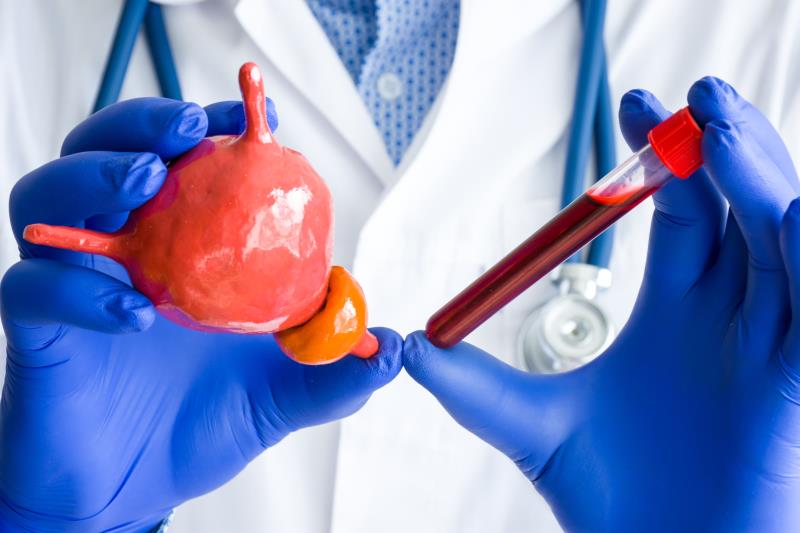
The investigational, oral GnRH* receptor antagonist relugolix effectively and rapidly reduced and sustained testosterone to castration levels while exhibiting a favourable safety profile in men with prostate cancer (PCa), a phase II trial has shown.
Established ADT** formulations are usually injectable, which although effective in achieving castration, are associated with worsening of genitourinary and other symptoms due to testosterone flares. [Rev Urol 2001;3:S10-4; Rev Urol 2012;14:1-12] “[These] limitations [highlight the] unmet need for a novel [oral ADT agent] in this treatment landscape,” said the researchers.
An oral formulation that can rapidly reduce testosterone and PSA*** levels may eliminate the need for injections, they noted. “[Patients] receiving a specific duration of therapy, those … eligible for intermittent therapy, and elderly patients with comorbidities or acute intercurrent illnesses where fatigue and muscle wasting are problematic [may also benefit from an oral drug],” they added.
Researchers sought to evaluate the efficacy and safety of relugolix in 103 men with histologically confirmed, localized, intermediate-risk PCa. Participants were randomized 3:2 to receive daily oral relugolix (loading dose of 320 mg then 120 mg) or monthly injectable degarelix# for 24 weeks (loading dose of 240 mg then 80 mg). EBRT## was initiated after 12–16 weeks of ADT. [Eur Urol 2020;doi:10.1016/j.eururo.2020.03.001]
The rates of effective castration (testosterone 1.73 nmol/L) were similarly high between relugolix and degarelix (95 percent and 89 percent), suggesting that both rapidly induced and maintained castration during the treatment period.
By week 12, median prostate volumes dropped from baseline with both relugolix and degarelix (26 percent and 29 percent). PSA reductions by ≥50 percent was ≥97 percent in both arms, while reductions by ≥90 percent was 55 percent and 47 percent in the relugolix and degarelix arms, respectively. These consistent effects between groups correlated with evidence on other GnRH analogues. [Eur Urol 2010;57:836-842; Clin Oncol 2013;25:190-196]
Following treatment cessation at week 24, testosterone levels in more than half (52 percent) of relugolix recipients recovered to baseline (>9.8 nmol/L) within 3 months. Only 16 percent of degarelix recipients achieved testosterone recovery. “[These suggest that] the rate of … testosterone recovery after treatment discontinuation was rapid with relugolix. These findings are consistent with its pharmacokinetic profile as daily oral therapy,” said the researchers.
The rapid testosterone recovery was also associated with rapid improvements in quality-of-life parameters such as the sexual activity score, which improved 3 months following treatment discontinuation (mean, 12.1 vs 6.6 for relugolix and degarelix, respectively).
Safety-wise, there were no adverse events (AEs) that limited treatment nor led to discontinuations. Severe AEs were infrequent in both relugolix and degarelix arms (2 percent and 11 percent).
“[Taken together, the results show that] relugolix achieved testosterone suppression to castration levels within days and maintained it over 24 weeks with a safety profile consistent with its mechanism of action,” said the researchers.
Despite the high compliance rate with relugolix (>98 percent), the researchers noted that this may not be reflective of adherence rates in a real-world setting. Nonetheless, they were quick to point out that compliance with self-administered oral medications may still be indirectly monitored with testosterone or PSA levels.
“[T]o our knowledge, relugolix is the only [oral GnRH receptor] antagonist in clinical development for PCa,” said the researchers. Longer-term trials are warranted to further elucidate its clinical benefit in this setting, they added.